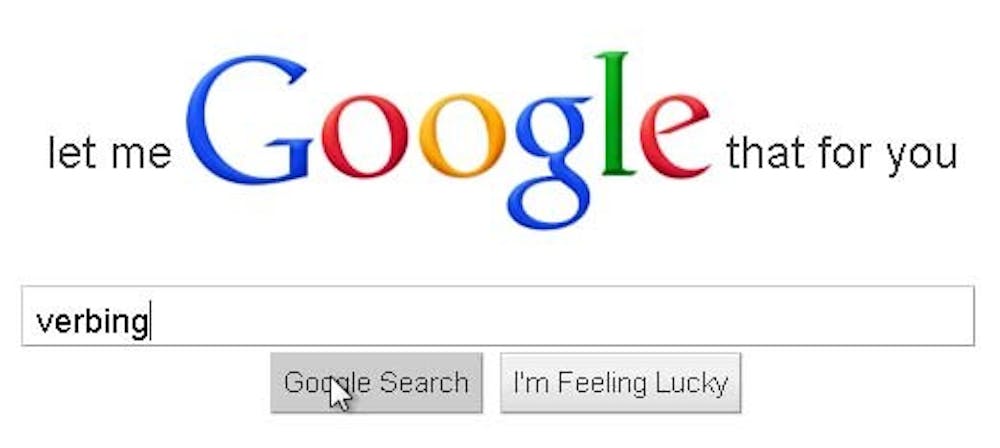The Facebook craze has driven our cyberspace wild, and to promote the site and get new friends, people tell each other at work or school, “Facebook me” — a promotion of the brand name, but also quicker and easier than telling them to “look me up on Facebook.” Time is of the essence; we don’t have much time to stand around and talk.
But Facebook has connected us and is now one of the most popular sites on the Internet to date, with people in every country getting on Facebook at least once a day. An obsession for some, a hobby for others.
The sites Google and Bing are now asking us to “Google it” and “Bing it.” The promotion of the brand name has been ultimately turned into a verb. Companies who use the Google brand name are told by Google how they have to use it, to bring the most benefits to the Google name.
This “verbing” (changing a noun to a verb) frenzy has swept the globe clean of some of our standard English language.
The Concise Oxford English Dictionary has now introduced to its 21st century edition words such as “retweet.” This comes from the social networking site which seems to have somehow opted out of the verbing: Tweeting is the verb, but Twitter is the name of the site.
Mobile phones have a unique way of verbing, too. Text is a verb and a noun and phone is a verb and a noun. But when will verbing become a well-known word in the dictionary?
I don’t think that “verbing” can ever get old. It will always be fun and exciting to keep creating new words.
As new sites and brands are created, the craze continues to add to our vocabulary and may eventually end up in Oxford English dictionaries all over the world.
To look at the other side of this verbing craze, will it pollute our well-put-together English vocabulary? Could it destroy our well-thought-out speech process and knowledge building? Will our children be subjected to verbing wherever they go and lose the true meaning of words?
This is a concern to me. I enjoy the language I have grown up speaking, and verbing really is a great tool to promote a brand such as Facebook. But is it really something we should hang on to in dictionaries? Has it made our English language lazier, as we don’t use as many words?
I am still undecided on how I feel about this fad, yet I find myself using them at least once or twice a day without fully realizing it, as do many of us. And I can’t deny that it has helped create a common kind of language for our world to use together.








